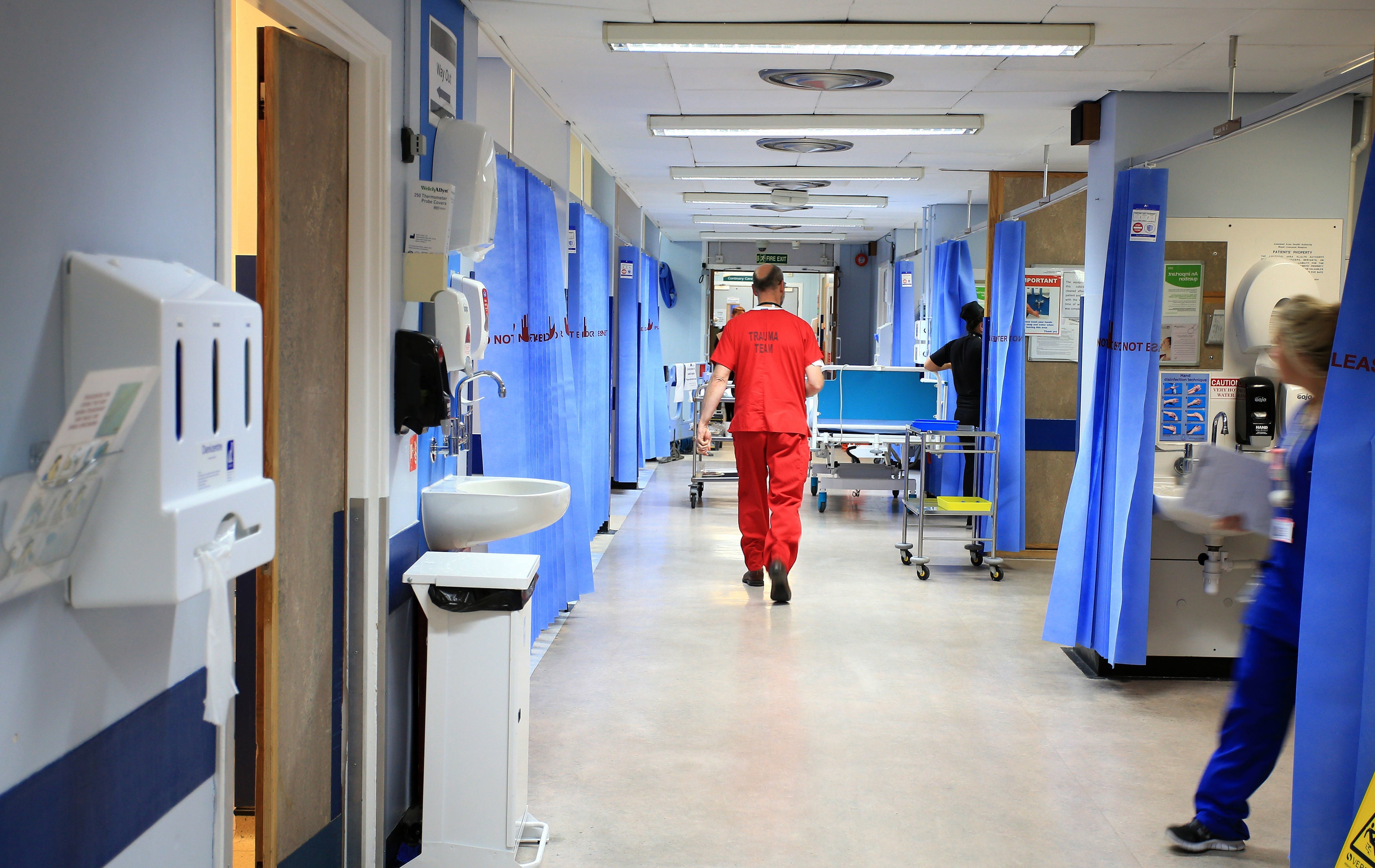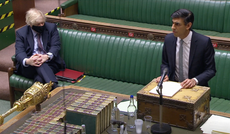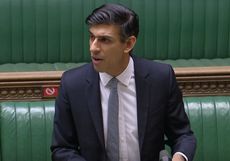Chancellor Rishi Sunak criticised over lack of NHS and social care spending
2021 Budget offers ‘little hope’ to ‘bruised’ social care sector, says former health secretary Jeremy Hunt

Your support helps us to tell the story
From reproductive rights to climate change to Big Tech, The Independent is on the ground when the story is developing. Whether it's investigating the financials of Elon Musk's pro-Trump PAC or producing our latest documentary, 'The A Word', which shines a light on the American women fighting for reproductive rights, we know how important it is to parse out the facts from the messaging.
At such a critical moment in US history, we need reporters on the ground. Your donation allows us to keep sending journalists to speak to both sides of the story.
The Independent is trusted by Americans across the entire political spectrum. And unlike many other quality news outlets, we choose not to lock Americans out of our reporting and analysis with paywalls. We believe quality journalism should be available to everyone, paid for by those who can afford it.
Your support makes all the difference.Rishi Sunak is facing widespread criticism for the absence of any increase in health and social care spending in his Budget, with experts warning both sectors are in urgent need of extra cash to cope with the coronavirus crisis.
In a speech to the House of Commons that lasted for more than 50 minutes, the chancellor barely mentioned the NHS and social care and offered no new spending pledges beyond an extra £1.6bn to boost the UK vaccination programme.
The Treasury’s detailed documents reveal NHS England will see an £8.6bn decrease in funding for 2021-22, unless the government commits to more spending. Experts say this has to happen in order for the health service to cope with the extra demand from coronavirus and tackle the largest waiting list of patients since 2007.
Despite Boris Johnson’s Downing Street pledge to fix the problems with social care when he became prime minister, there was no mention of planned reforms or support to help care providers in the coming months. Social care was not mentioned once by the chancellor or in the Treasury documents.
Former Health Secretary Jeremy Hunt praised the wider measures to support businesses, but warned on Twitter: “Little hope for social care sector bruised and demoralised after most devastating year in its history. Understand money is difficult to commit at this stage, but they desperately need to know a plan is coming.”
Richard Sloggett, a former special adviser to Health Secretary Matt Hancock and founder of Future Health, told The Independent: “The lack of reference to the NHS and social care in the Chancellor's statement was noticeable, surprising and disappointing given the impact of the pandemic and the scale of the recovery now needed.
“The next spending review in the autumn is now a major crunch point for long overdue decisions on social care reform, staff support and improving public health.”
Health and care analysts expressed their surprise at the lack of any new investment for the NHS and care homes. It comes as care bosses told The Independent this week that as many as two million people could have unmet needs, and elderly people faced being forced into institutional care.
Waiting lists in the NHS have reached record levels, with more than 225,0000 patients waiting longer than a year and a total waiting list of 4.6 million people.
Siva Anandaciva, chief analyst at The King’s Fund, told The Independent he expected the reduction in budget for NHS England would be reversed: “The experience of the previous year – from the spring Budget 2020 onwards – suggests that this will not be the final word on spending for next year, and the NHS will surely need additional funding to meet any future waves of the virus and make some headway into the rising waits for care that have built up.
“The Treasury has shown some increased flexibility over the past year to recognise the uncertain path of public spending in response to the uncertain path of the virus. This flexibility will be needed again in 2021-22 if the chancellor is to keep his promise to give the NHS what it needs."
Nigel Edwards, chief executive of the Nuffield Trust health think tank, said: “It is striking that a plan and support for the recovery of health and social care services are absent in this Budget.
“Recovery from the pandemic will take several years, not only for the economy, but for the NHS to work through waiting lists, boost capacity and adjust to the ongoing demands of Covid-19 on the health service. An increase in the NHS budget for the next financial year is likely to be needed as well as honesty that patients are going to end up waiting longer for some time.”
He said the extra temporary funding of £3bn for the NHS to start to recover from the effects of the pandemic which were announced last year were “only a start” in what the health service needed.
He added: “It is disappointing that there was no lifeline for our struggling social care sector hit hard by the pandemic. A promised white paper is still yet to surface. Structural reform is now as important as reassurances on short-term funding and support, given the fragility of the provider market and the substantial challenges the sector continues to face.”
Hospital leaders urged the Chancellor to stick to his promise made at the start of the pandemic to give the NHS what it needed.
The deputy chief executive of NHS Providers, Saffron Cordery, said the NHS would have to get extra cash to cope with the demands it was seeing.
She added: “Today’s budget has fallen short on setting out the strategic direction for public services, and in particular, much needed support for social care, which desperately needs investment and a longer term programme of support.”
Ahead of the Budget, NHS unions had been lobbying for a significantly above inflation pay rise of 12.5 per cent. A national pay review process is ongoing, but the chancellor made no reference to public sector pay during the speech.
Unison’s head of health Sara Gorton, who chairs the NHS group of unions, said the chancellor had let down staff and the public.
She warmed: “The NHS faces an exodus after the pandemic as staff leave. A wage increase would boost morale and the economy.”
Medical unions warned the government risked an exodus of staff over its plans to freeze the lifetime allowance for pensions which could leave more doctors facing large tax bills.
Dr Susan Crossland, president of the Society for Acute Medicine, told The Independent the Budget was “demoralising” for staff. She also warned of the dangers of the freeze in lifetime pension allowance which she said could see “a a tranche of senior medics reducing working hours or retiring early to avoid huge tax bills.
“The government cannot simply ignore this issue and let it fester at a time when the medical workforce is not only understaffed already but exhausted. We cannot afford to lose senior clinicians when the NHS will be undergoing its own period of recovery in the coming years.”
The British Medical Association labelled it an “unfair tax on doctors”.



Join our commenting forum
Join thought-provoking conversations, follow other Independent readers and see their replies
Comments